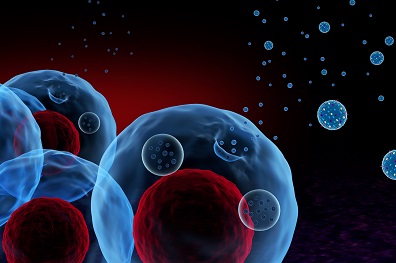Boosting T Cell Immunity To Fight Against Viral Infections Such As COVID-19 And Also Cancers: The Critical Role of Extracellular Vesicles
Medical News - T Cells - Extracellular Vesicles Apr 14, 2023 2 years, 10 months, 1 week, 2 days, 20 hours, 52 minutes ago
Medical News: A recent study led by Professor Dr Thomas Brocker and Dr Jan Kranich from LMU's Biomedical Center-Germany has demonstrated the significant role of extracellular vesicles (EVs) in enhancing the immune response of T cells, a crucial component of the immune system responsible for defending against viral infections. The study utilized a mouse model to explore the interaction between T cells and Extracellular vesicles or EVs.
 Pic Credit : Shutterstock
Pic Credit : Shutterstock
The study findings are important as they can help in the development of therapeutics to deal with COVID-19 Infections and other viral infections and also in the fight against cancer.
Extracellular vesicles are small membrane particles secreted by cells and involved in cell-to-cell communication. The study team discovered that killer T cells, a subtype of T cells that attack diseased cells, intensively interact with these vesicles once activated. This interaction provides the T cells with an additional "boost," promoting their proliferation and increasing the activation of various genes essential for combating infection.
Interestingly, the study found that the number of vesicles in the serum decreased after infection, while their number increased on T cells in the spleen. This observation led the study team to conclude that the binding of vesicles to cells is enhanced following an infection. According to Dr Kranich, extracellular vesicles act as a "danger signal" for T cells, indicating that the infection has not yet been eliminated.
Dr Kranich told Thailand
Medical News, "Extracellular vesicles essentially function as a 'danger signal' for T cells, indicating that the infection has not yet been eliminated. We hope to be able to use this discovery in future for therapeutic approaches aimed at strengthening the T cell response to viruses and tumors."
The study also showed that phosphatidylserine+ (PS) extracellular vesicles interact predominantly with CD8+ T cells during viral infections, increasing the expression of effector genes and proliferation of these T cells. The interaction between PS+ EVs and CD8+ T cells helps boost T cell effector functions, making them more effective in fighting viral infections.
The study team explored the mechanisms by which extracellular vesicles (EVs) affect T cells in vivo, a topic that has been unclear in previous studies.
Extracellular vesicles (EVs), which include subtypes such as exosomes and microvesicles, carry various bioactive molecules capable of altering the function and phenotype of recipient cells.
Despite numerous studies demonstrating the ability of extracellular vesicles (EVs) derived from antigen-presenting cells (APCs) to induce T cell proliferation, memory development, and antitumor responses, the precise mechanisms of T cell stimulation remain unknown.
During viral infections, activated CD8+ T cells associate with naturally occurring Extracellular vesicles (EVs). These EVs induce T cell receptor (TCR) signaling in antigen-specific CD8+ T cells in vivo, resu
lting in enhanced effector gene expression signatures.
The study findings established that extracellular vesicles (EVs) can boost effector gene expression by directly associating with activated, antigen-specific CD8+ T cells during acute infection.
The study's findings also suggest that extracellular vesicles attached to the surface of CD8+ T cells act as adjuvants for virus-specific, activated CD8+ T cells, enhancing antiviral T effector cell responses. This discovery could have significant implications for understanding and developing new therapies to strengthen the immune response against viral infections and tumors.
In conclusion, the research led by Professor Dr Thomas Brocker and Dr Jan Kranich has revealed the critical role of extracellular vesicles in enhancing the immune response of T cells. The interaction between EVs and T cells serves as an additional "boost," promoting T cell proliferation and the activation of genes necessary for combating infection. These study findings could pave the way for future therapeutic approaches to strengthen the T cell response to viruses and tumors and will be useful in the development for therapeutics for COVID-19 and the impending H5N1 pandemic.
The study findings were published in the peer reviewed journal: Proceedings of the National Academy of Sciences.
https://www.pnas.org/doi/10.1073/pnas.2210047120
For the latest
Medical News, keep on logging to Thailand Medical News.
